New music is essential to the survival of the viol consort, writes Richard Boothby of Fretwork, ahead of the group’s appearance at Music@Malling
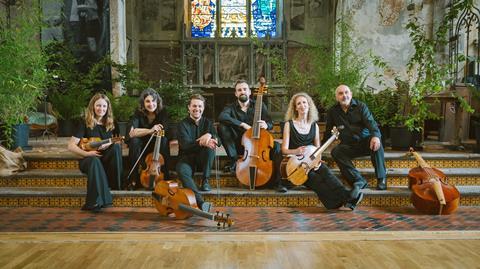
Discover more Featured Stories like this in The Strad Playing Hub
A couple of years after Fretwork was founded, I received a call from George Benjamin, who I didn’t know and about whom I had only a vague idea. He had heard our first recording, and wanted to know more about the viol, with a view to composing a new work. He invited me around to his house to demonstrate the instrument, together with some of his students from the RCM. I had no idea how significant this meeting would be.
Out of that encounter, he composed Upon Silence, the first new work written for us, and something of a surprise for the group. We saw our mission was to rehabilitate the viol consort and present the great music from the 16th and 17th centuries to the highest standard of performance; so it felt at the time as if contemporary music was something of a distraction. And the piece was (and is) hard. George is also the most demanding conductor I’ve ever worked with - but in the nicest and most patient way. And he had to be patient while we learned a different kind of precision, and it took us about ten years before we were ready to record the work.
We are playing it again, once again with the extraordinary mezzo-soprano Sue Bickley, in the Music@Malling Festival later this month, and it has reminded me what a masterpiece it is - complex, yet urgently compelling, full of the most beautiful sounds, extraordinary combinations, textures and techniques that illustrate and inhabit Yates’s poem.
What we didn’t realise back in the 1980s, was that contemporary music was essential for the survival both of Fretwork and the viol consort. Without a living repertory, the consort becomes merely a museum of pieces, and we would have played and recorded all the great music from those past centuries by now, with nowhere to go but to do it all again.
Contemporary music was essential for the survival both of Fretwork and the viol consort
The viol lends itself to contemporary music very well. It has some of the chordal possibilities of the guitar, yet is bowed like violins and cellos. It’s very flexible in that any viol player can play any size instrument, so really any combination of the three principal sizes is possible. The way the viols’ sound combines means it can be extremely homophonic, yet in contrapuntal music, each line is distinct and clear.
Since my encounter with George all those years ago, we have commissioned over 50 new works for the consort, from all variety of composers, including Elvis Costello, Sir John Tavener, Orlando Gough, Alexander Goehr, Nico Muhly and many others.
Many composers have referenced the music of the past in their music for us, and we have often asked for something that does so; for example, we asked Nico Muhly to write an In Nomine for us, as we were planning a programme focussing on that genre, and then recorded it as part of our In Nomine II disc. Nico’s piece faithfully presents the ‘Gloria tibi trinitas’ plainsong (twice), but in quick repeated semiquavers that shimmer and pulse, giving the old contrapuntal style an electric shock that jolts it life and into the 21st century.
Our investigation of the way viol players may have played consort music of the past has influenced how composers write for us, and how we play their music now. And vice versa: playing new music has involved learning new skills that can and have ben applied to the old music we play. There is a dialogue going on between old and new and we are the medium through which this discussion takes place.
One thing we have to fight against, however, is a tendency to move as a group in dynamics, to all become loud or quiet as a unit, rather than individually. This instinct is generally useful and good in old music, yet can be frustrating for contemporary composers who want individual lines played at different volumes. Yet, there are many instances in older music where bringing a single line out more than the surrounding material is also good, and it’s an instance where new skills help our playing of our more core repertory.
In the Music@Malling Festival programme, we’re also playing two sets of pieces by John Woolrich, who has written a number works for viol consort alone, and with voice and with oboe, commissioned by Nick Daniel, the great oboist. These are entitled From the Book of Disquiet, taking their inspiration from the Portuguese writer Fernando Pessoa’s extraordinary collection of random thoughts, essays, poems, aphorisms etc. Woolrich mirrors the random, indifferent, oblique nature of Pessoa’s writing with music as pointillist and sparse. The viol consort is an excellent medium for such an aesthetic.
A further inspiration for us that comes from performing new music, is the desire to play music from all periods, and fill-in the gap left by early and late. This we have arranged much keyboard music by Bach, and then ventured into the 19th and 20th centuries with select pieces by Grieg, Debussy, Beethoven, Percy Grainger, Shostakovich, John Cage, Poulenc, Fauré and others. In Malling, we will perform a beautiful song by Hugo Wolf, Auf ein Altes Bild. We are currently thinking about a new album of French music from all periods, called À la recherche du temps perdu, touching on Proust and Shakespeare, who provided him with the title for his monumental novel.
So, for Fretwork, there are no boundaries to the music we play, other than practicalities of whether a work is feasible on our instruments, and whether we can bring something distinctive and new. We can, and do, now play music from six centuries and continue to commission new works to expand our repertory wider still. Onwards!
Fretwork performs at Music@Malling with Susan Bickley (mezzo-soprano) and Thomas Kemp (conductor) on Wednesday 25 September 2024 at Malling Abbey. The programme includes George Benjamin’s ‘Upon Silence’, as well as works by John Woolrich, Purcell and more. The Festival runs from 20 to 28 September 2024 in historic venues around West Malling.
Read: Session Report: A royal consort
Read: From the archive: a 1618 Henry Jaye viol
Read more Featured Stories like this in The Strad Playing Hub
The number one source for playing and teaching books, guides, CDs, calendars and back issues of the magazine.
In The Best of Technique you’ll discover the top playing tips of the world’s leading string players and teachers. It’s packed full of exercises for students, plus examples from the standard repertoire to show you how to integrate the technique into your playing.
The Strad’s Masterclass series brings together the finest string players with some of the greatest string works ever written. Always one of our most popular sections, Masterclass has been an invaluable aid to aspiring soloists, chamber musicians and string teachers since the 1990s.
The Canada Council of the Arts’ Musical Instrument Bank is 40 years old in 2025. This year’s calendar celebrates some its treasures, including four instruments by Antonio Stradivari and priceless works by Montagnana, Gagliano, Pressenda and David Tecchler.

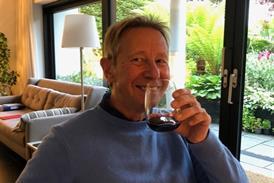

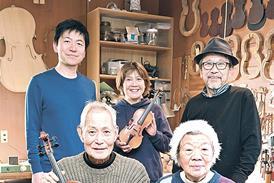
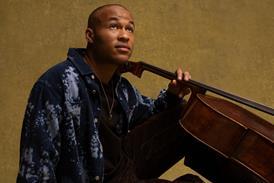




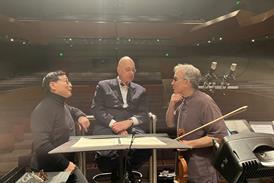


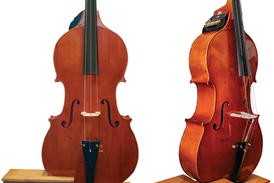






























No comments yet